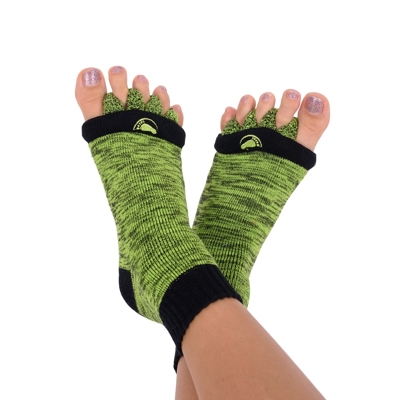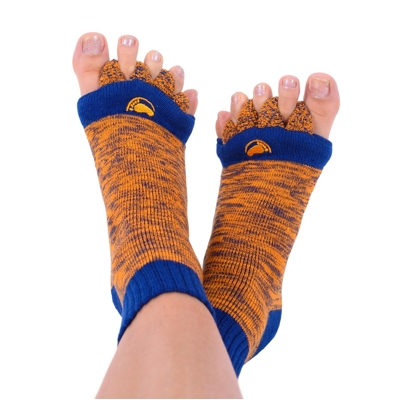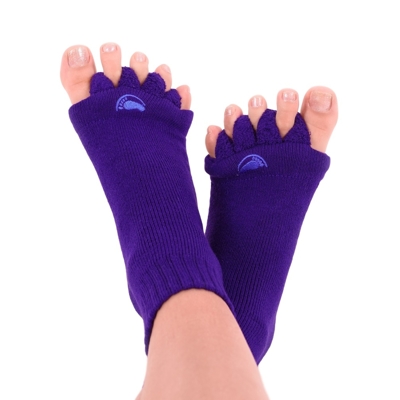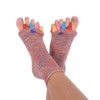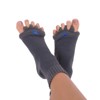Physiotherapist Mgr. Tereza Klečková: Start by preventing children from having unhealthy feet

Mgr. Tereza Klečková is a graduate in physiotherapy from Charles University. After her studies, she worked as a physiotherapist in state and private healthcare facilities, and eventually, her own private practice. Currently, she is a professional assistant at the University of West Bohemia in Pilsen, where she helps educate future physiotherapists and occupational therapists. Mrs. Klečková talked about foot health and preventive strategies.
When is the best time to prevent foot problems?
Ideally, as soon as possible. I would even say that the right time is with infants. Selecting the right socks and pre-walkers is especially important. Socks should be cotton, and pre-walkers should be made of leather and ideally be seamless so that the child’s natural foot movements are not restricted. Footwear for first steps should be light, flexible and sufficiently wide. Of course, they should be new, not hand-me-downs from other children.
How do we prevent unhealthy feet?
Basic prevention includes good hygiene, choosing the right socks and shoes, maintaining the right body weight, or, for example, suitably selected physical activities and allowing enough time for recuperation.
Prevention also entails our feet sensing enough information about movement and position, called “proprioception”. Proprioceptive stimulation can involve simply walking barefoot on different surfaces, such as grass, sand or smooth stones.
OUR TIP: To stimulate and encourage blood circulation in your feet, try regularly
wearing The Original Foot Alignment Socks, which you can find in our e-shop.

What is basic foot care and hygiene?
Regularly washing the feet should be obvious to everyone. Pay attention to carefully drying the skin, especially the spaces between the toes. Self-massage to help circulate blood is also good since it improves tissue metabolism and regeneration.
We should also look after our nails, which should be short and cut straight. Alternatively, I recommend a regular pedicure to look after the nails professionally.
What does a healthy foot look like and what does it indicate?
The signs of a healthy foot include a uniform skin colour and firmness as well as the absence of any pressure sores. A healthy foot should have a visible longitudinal and transverse arch, and of course, it should be free of orthopaedic deformities.
In your opinion, how should people choose shoes?
Look at several factors when choosing a suitable shoe. Apart from the right size (not only the shoe’s length but also width), the shoe should be flexible and be able to breath.
A small tip for finding the right shoe width: remove the inner insole from the shoe and step on it with your full weight. Naturally, the foot will widen a little under pressure. If the foot does not go over the edge of the insole, then the shoe is suitable. If this isn’t the case, then you will need wider shoes.
Footwear for day-to-day wear should have a rigid heel that keeps the heel bone on its axis, which then also affects the position of the forefoot. The sole beneath the heel should be about 1 to 2 centimetres thick.
Of course, you should not take over or buy used shoes, and ideally you should alternate pairs of shoes depending on what you use them for.
How are foot problems diagnosed? Who should we turn to in case of complications?
If you suspect a problem or deformity, you can consult a physiotherapist or podiatrist to have your feet clinically examined. This is done in several ways, either by sight or touch, or, for example, with special tests to detect functional problems in the foot or by using modern imaging methods.



